Setting Up API Functions with Tool Params in YourGPT
YourGPT Functions enable powerful, modular logic to be executed within chat conversations. One of the most versatile types is the API Function, which allows you to connect external APIs to natural language prompts — making your assistant dynamic, data-driven, and action-capable.
When users make requests, YourGPT automatically extracts key parameters from their input using AI. These are referred to as Tool Params, and they’re mapped into API endpoints to generate context-aware responses.
Whether you want to recommend products, create support tickets, fetch CRM data, or optimize pricing, API Functions let you build reusable workflows that respond to real-world inputs instantly.
📘 Overview: Creating a API Function with Tool Params
Go to Function in Dashboard.
Click on Add API Function.
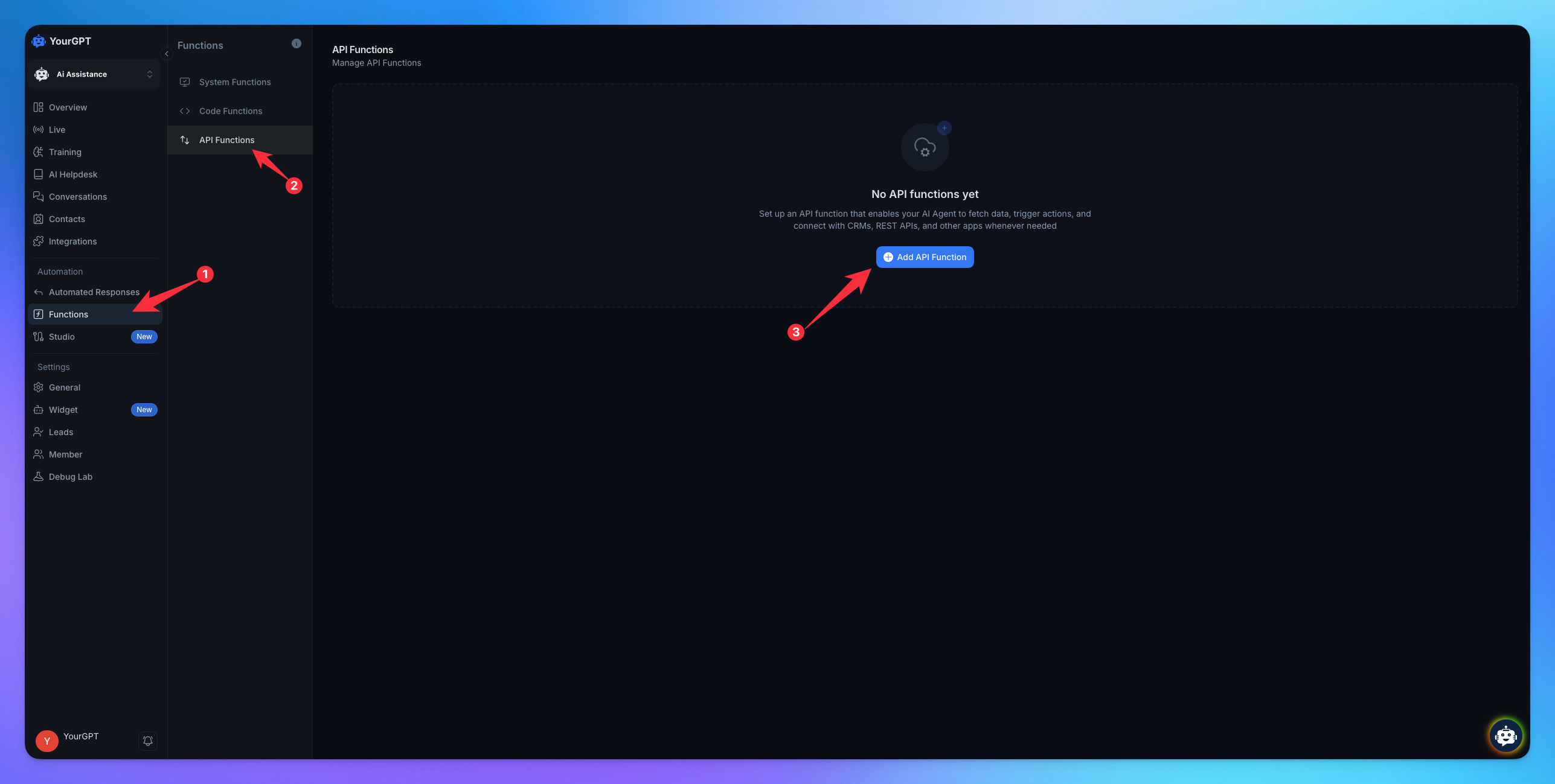
Set the Function Name and Description.
Define Tool Params by creating Parameter Variables.
Add Variable name with Tool Params - {{Tool_Params.Variable_Name}}
Click on Add Function to Save to function.
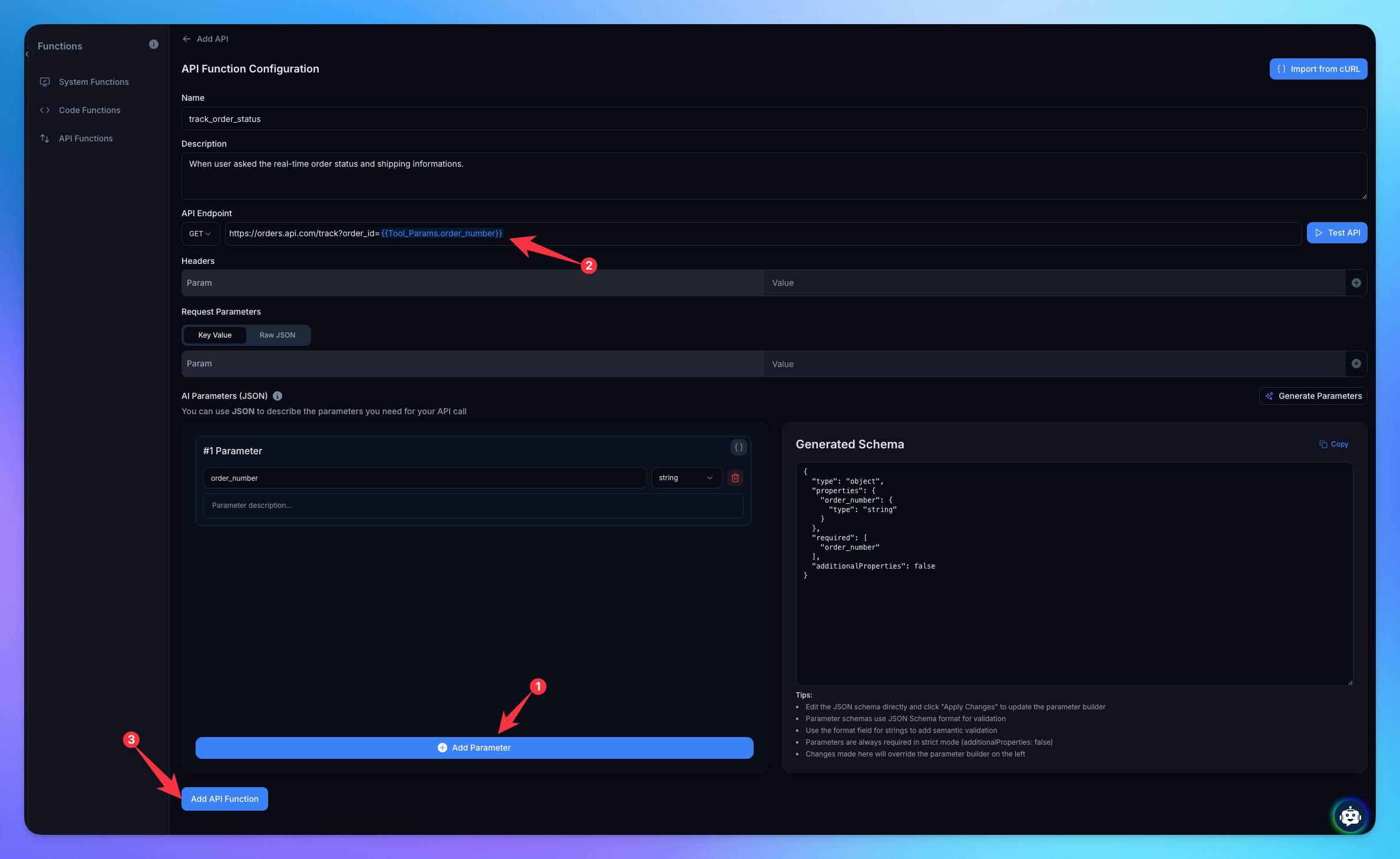
Let’s look at several real-world use cases demonstrating how Tool Params can be applied to dynamic Functions.
Use Case 1: Post Fetching
When the user asked to get the particular post with its post ID.
User Input: "Show me the post with post ID 5"
API Configuration
Endpoint: https://jsonplaceholder.typicode.com/posts
Method: GET
Function Name: getPost
URL Structure:
https://jsonplaceholder.typicode.com/posts/{{Tool_Params.post_id}}Tool Params Mapping
Variable | Value | Description |
|---|---|---|
post_id | 5 | The unique id of post |
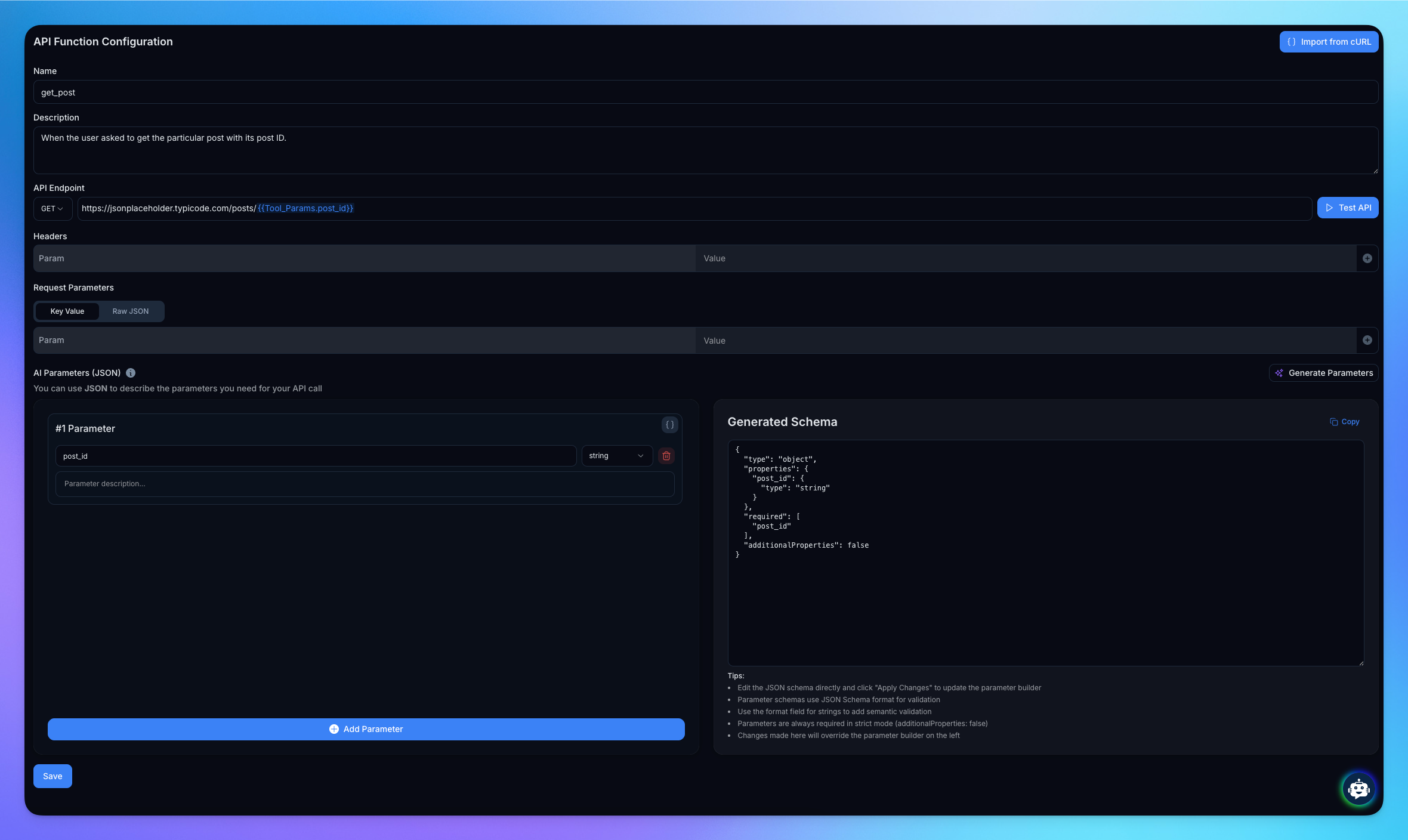
Expected Response
{
"userId": 1,
"id": 5,
"title": "YourGPT",
"body": "This is the post body"
}Use Case 2: Searching Users
Description
When the user is asked to search for a user with their first and last name.
User Input: "Check if this user exists whose first name is John and last name is Doe"
API Configuration
Endpoint: https://jsonplaceholder.typicode.com/users
Method: Get
Function Name: searchUser
URL Structure
https://jsonplaceholder.typicode.com/users?name={{Tool_Params.first_name}}%20{{Tool_Params.last_name}}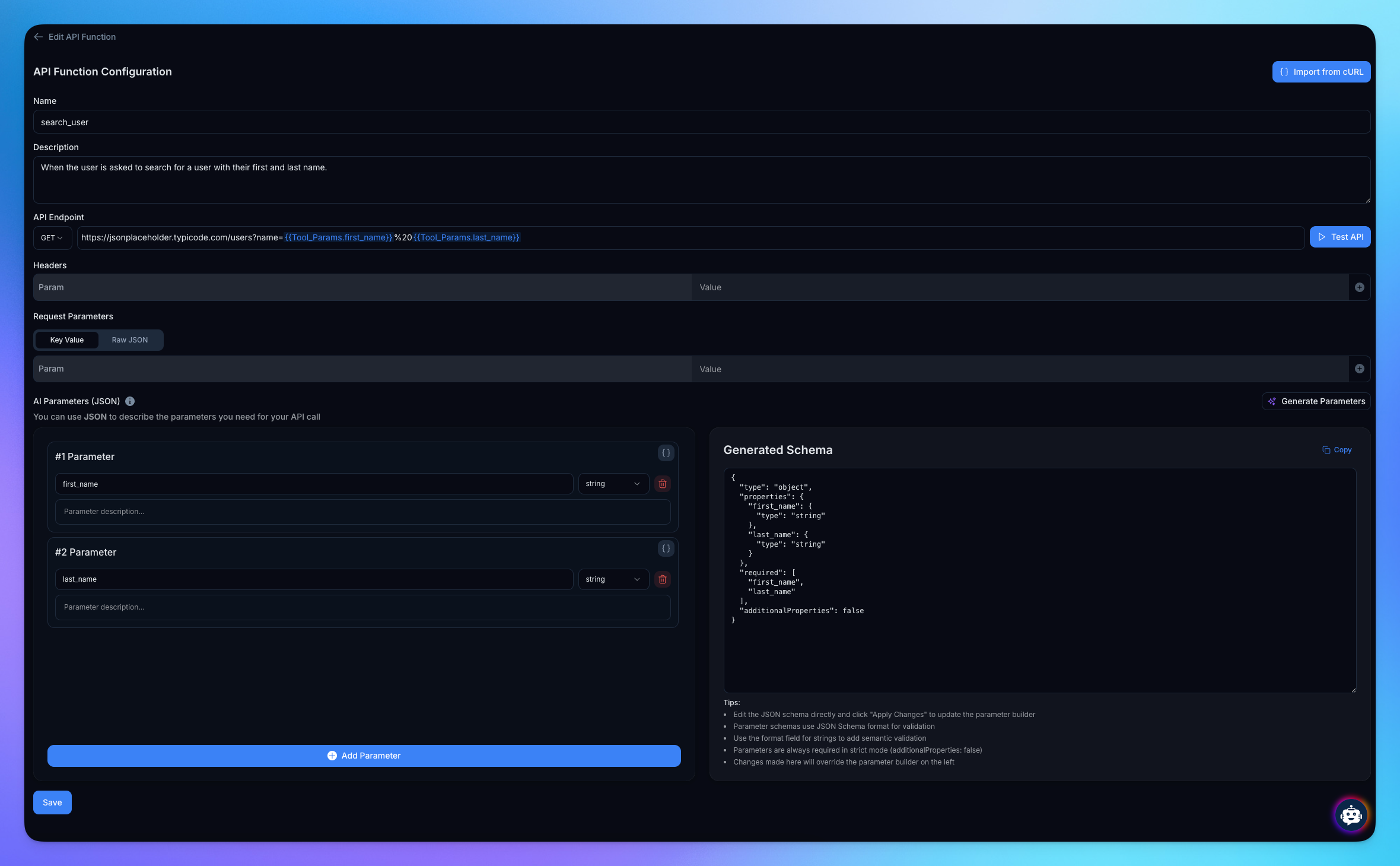
Expected Response
[
{
"id": 1,
"name": "Leanne Graham",
"username": "Bret",
"email": "[email protected]",
"address": {
"street": "Kulas Light",
"suite": "Apt. 556",
"city": "Gwenborough",
"zipcode": "92998-3874",
"geo": {
"lat": "-37.3159",
"lng": "81.1496"
}
},
"phone": "1-770-736-8031 x56442",
"website": "hildegard.org",
"company": {
"name": "Romaguera-Crona",
"catchPhrase": "Multi-layered client-server neural-net",
"bs": "harness real-time e-markets"
}
}
]Use Case 3: Creating Post
Description
When the user is asked to create the post with userId, title, and body.
User Input: "Create a post titled YourGPT Docs, with userId 11 and body: This is sample body data."
API Configuration
Endpoint: https://jsonplaceholder.typicode.com/posts
Method: POST
Function Name: createPost
URL Structure
https://jsonplaceholder.typicode.com/postsTool Params Mapping
Variable | Value | Description |
|---|---|---|
userId | 11 | Id of the user |
title | YourGPT docs | Title for the post |
body | The sample body of post | Description of the post. |
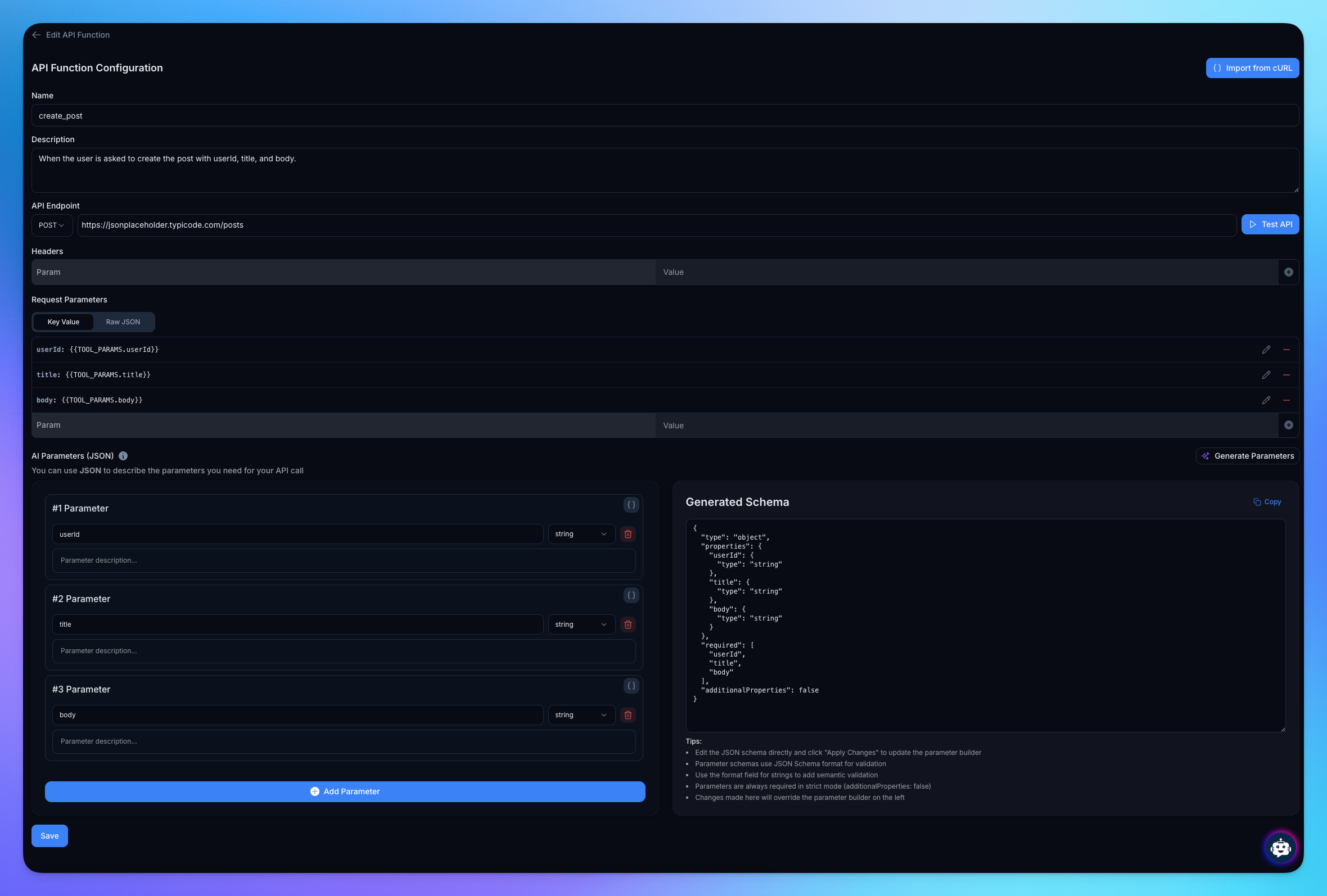
Expected Response
{
"userId": "11",
"title": "Testing API",
"body": "Post body data",
"id": 101
}Use Case 4: Lead Scoring
Description
When the user is asked to get the industry score for the target industry with the minimum score.
User Input: "Find warm prospects in fintech with score above 80"
API Configuration
Endpoint: https://crm.api.com/leads
Method: GET
Function Name: getQualifiedLeads
URL Structure
https://crm.api.com.xyz/leads?industry={{Tool_Params.target_industry}}&score_min={{Tool_Params.min_score}}
Tool Params Mapping
Variable | Value | Description |
|---|---|---|
target_industry | fintech | Industry vertical to target |
min_score | 80 | Minimum lead score threshold |
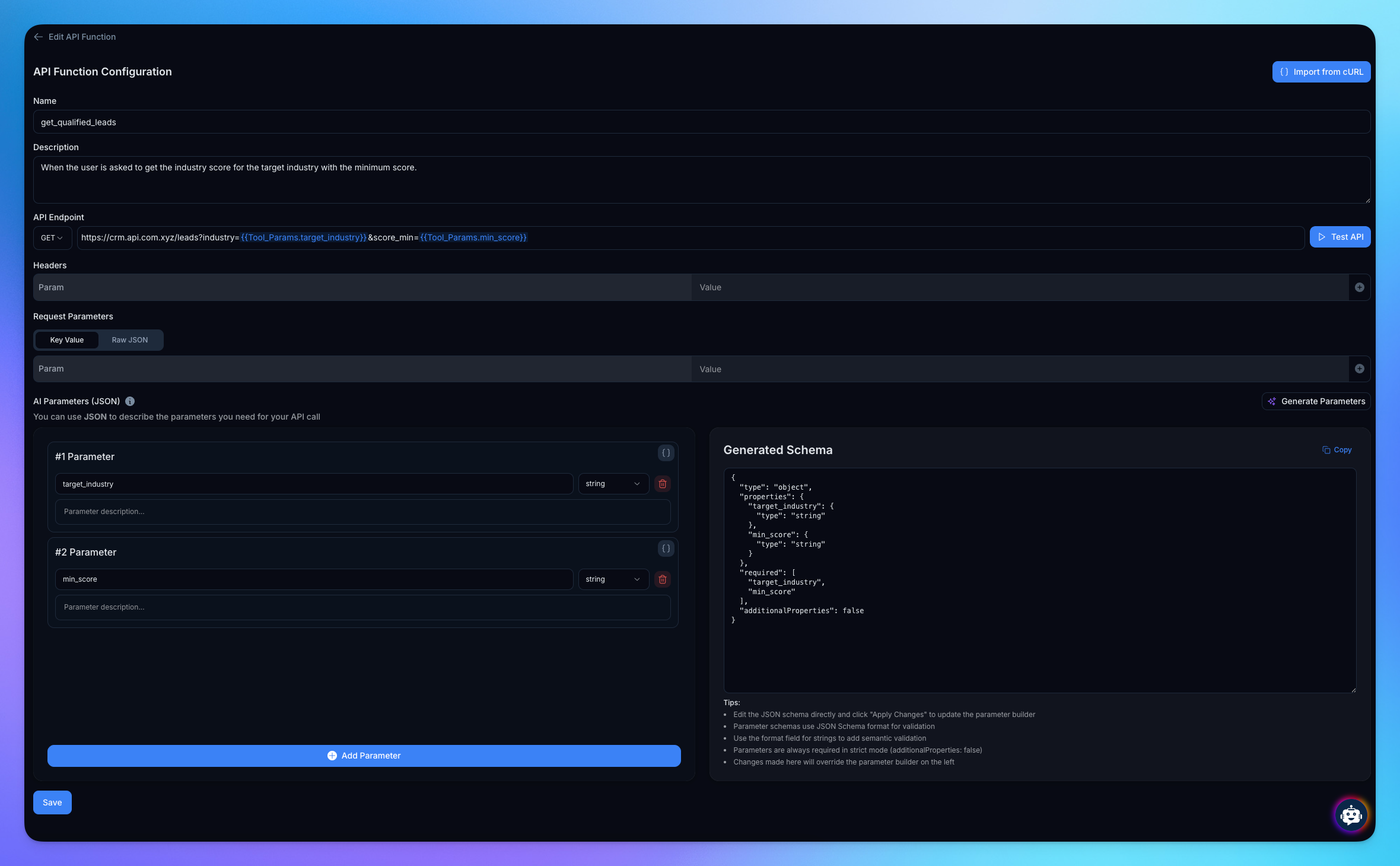
Expected Response
{
"qualified_leads": [
{
"id": "lead_001",
"company": "TechBank Solutions",
"contact_name": "Sarah Johnson",
"score": 87,
"industry": "fintech",
"engagement_level": "high",
"last_activity": "2024-08-28"
}
],
"total_count": 15,
"avg_score": 84.2
}Use Case 5: Support Priority Management
Description
When users are asked to show the tickets with their tier level and their status.
User Input: "Show open tickets from VIP customers"
API Configuration
Endpoint: https://support.api.com/tickets
Method: GET
Function Name: getPriorityTickets
URL Structure
https://support.api.com.xyz/tickets?customer_tier={{Tool_Params.tier_level}}&status={{Tool_Params.ticket_status}}
Tool Params Mapping
Variable | Value | Description |
|---|---|---|
tier_level | VIP | Customer tier level |
ticket_status | open | Current ticket status |
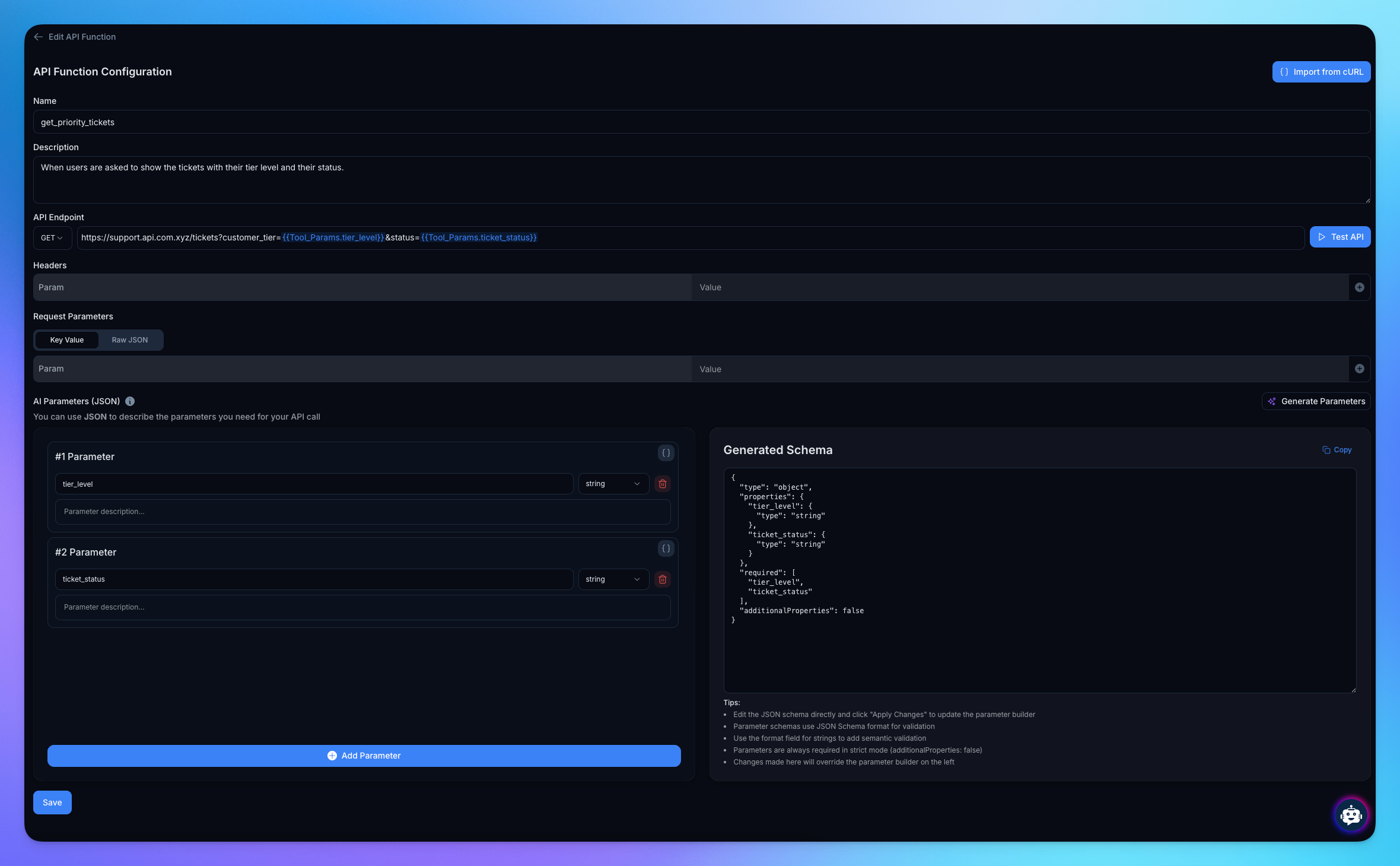
Expected Response
{
"priority_tickets": [
{
"ticket_id": "TKT-001",
"customer_name": "Enterprise Corp",
"tier": "VIP",
"subject": "Integration Issue",
"priority": "high",
"created_date": "2025-08-30",
"sla_deadline": "2025-09-01"
}
],
"total_vip_tickets": 7,
"avg_response_time": "2.3 hours"
}Use Case 6: Order Tracking
Description
When the user asked to check the status of the order with the order number.
User Input: "Where's order 12345?"
API Configuration
Endpoint: https://orders.api.com/track
Method: GET
Function Name: trackOrderStatus
URL Structure
https://orders.api.com.xyz/track?order_id={{Tool_Params.order_number}}
Tool Params Mapping
Value | Description |
|---|---|
12345 | Unique order identifier |
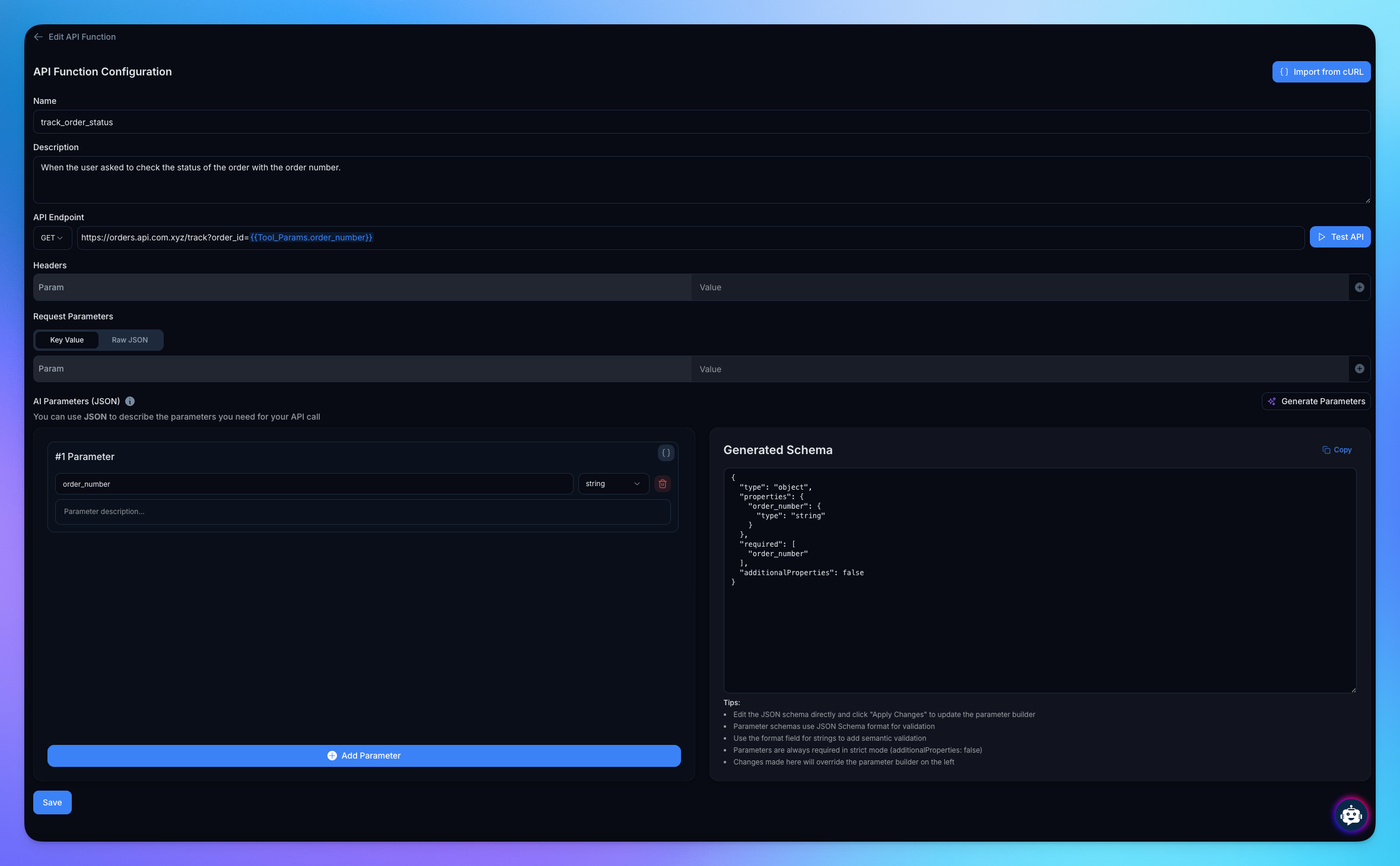
Expected Response
{
"order_details": {
"order_id": "12345",
"status": "in_transit",
"tracking_number": "1Z999AA123456789",
"estimated_delivery": "2024-09-03",
"current_location": "Distribution Center - Chicago",
"shipping_method": "express",
"delivery_address": "123 Main St, New York, NY 10001"
}
}
